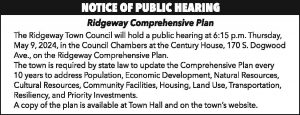WINNSBORO – An ordinance to offer a one-time tax credit in order to attract an international company cleared its public hearing and second reading by County Council Monday night. The ordinance amends the fee-in-lieu-of-taxes agreement between the County and Lang Mekra North America, LLC, offering them a one-time tax credit of $35,000 in exchange for Lang Mekra lowering its sales price on a building they own in the Walter Brown Industrial Park, Tiffany Harrison, Director of Economic Development, explained. Lang Mekra has reduced its asking price for the building by more than the $35,000 tax credit, Harrison said, and the deal would result in more than what the one-time credit is worth in annual property taxes from the proposed new company slated to purchase the building. Lang Mekra, Harrison said, currently pays approximately $220,000 a year in county property taxes.
While Harrison would not disclose the name or the nature of the proposed new industry, she said the company plans to make a $1.5 million investment in the County that would result in approximately $36,000 a year in annual property taxes. Harrison said the company is a relatively small venture, which plans to create 25 jobs over the next five years.
Council also passed second reading of an ordinance to sell the former location of their Voter Registration offices at 117 E. Washington St. in Winnsboro to the Fairfield Community Development Corporation, Inc. (FCDC), a non-profit that has designs on the historic building as part of the downtown farmers market.
At a Council work session on Sept. 18, Terry Vickers, President of the Fairfield Chamber of Commerce, presented a proposal to Council on behalf of the FCDC. Vickers said the FCDC would purchase the building for $100 “and considerations,” during the work session, and the building would be remodeled to serve as the cornerstone of the next phase of the Winnsboro Farmers Market. Christ Central Ministries had a tentative proposal for the building, but pulled their proposal before it ever came to full Council once they learned the FCDC was interested in the property, Chairman David Ferguson (District 5) said Sept. 18.
The 6,200-square-foot building will be known as the Fairfield County Farmers Market Artisan Center Community Kitchen, and will include commercial kitchen space, space for classrooms, as well as an area for the farmers market. Vickers said last month that the FCDC had received a pledge of $125,000 from three donors wishing to remain anonymous to begin refurbishing the building. The FCDC will also write a Rural Business Enterprise Grant proposal for an additional $200,000, she said. In early 2014, she said, a third phase grant through Eat Smart Move More South Carolina will be written for equipment, technical assistance, professional services, start-up operating costs and working capital. Vickers said the FCDC will insure the building at the time of purchase from the County and will have the facility fully operational by the fall of 2014.
In a symbolic gesture, Council also passed 5-1 a resolution in opposition to House bill 3290 and Senate bill 203, officially known as the “Business Freedom to Choose Act,” but more commonly known as the solid waste flow control bills. Councilwoman Carolyn Robinson (District 2) voted against the resolution. The bills have created considerable controversy among the counties who claim the legislation will open up the state to all manners of out-of-state waste. Proponents of the bill, including one of its co-sponsors, State Sen. Creighton Coleman (D-17), say the legislation merely prevents counties from forming waste hauling monopolies.










